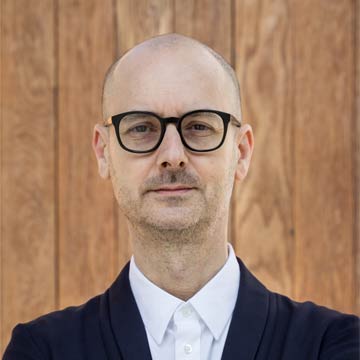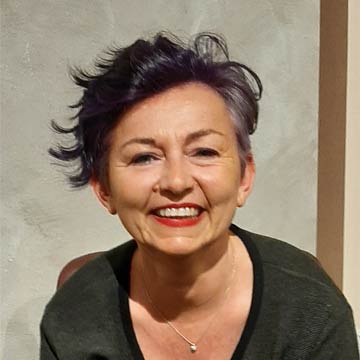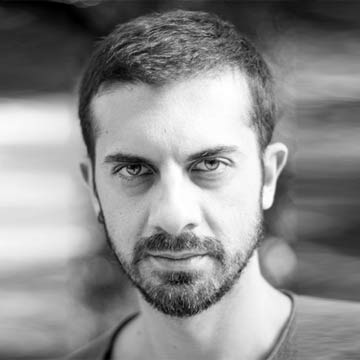
Dates:
· 14 September: Director Antonio Latella welcomes all the participants in the workshops and presents the programme; to be followed by the Golden and Silver Lion award ceremony
· 15 > 23 September: workshop with Umberto Angelini
· 24 and 25 September: attendance at the finale of the Directors Under 30 call.
Language: Italian
For: anyone who is interested, ages 18 to 40
Participants: maximum 12
WORKSHOP
Title: Omissis
“Isn’t that what they tell us in Genesis? Isn’t that what the Garden of Eden story is telling us?”
“What? Telling us what?”
“Without transgression there is no knowledge.”
American Pastoral, Philip Roth
A conversation on the meaning and on the practices of the artistic direction of a theatre, a festival, a project. Is it appropriate to use the words new censure? We will try to interrogate the mesh of freedom, invisible dependencies, algorithmic powers, new points of view in order to concretely delineate the possibilities of artistic programming.
Umberto Angelini
Curates and develops projects for the theatre, dance, music and the performing arts that establish a dialogue with the visual arts, architecture, design.
He is currently the Superintendent and Artistic Director of the Fondazione del Teatro Grande in Brescia (opera, music, dance); Artistic Director of the Triennale Milano Teatro and Chief Curator of the Triennale Milano per the theatre, dance, music and performance sector. From 2010 to 2018 he was the Artistic Director of Uovokids, a festival dedicated to children and contemporary creativity and from 2003 to 2015 he was the Artistic Director of the Uovo Performing Arts Festival, an interdisciplinary project on the contemporary performing arts. From 2000 to 2002 he was the director of the performing arts department of the CRT in Milan, the director of “Short Formats”, the international festival of new choreography, and a member of the board of DBM, the European network for the promotion of contemporary art in the Mediterranean basin.
Over the years he has been an artistic consultant for Institutions and businesses, and has conceived and directed various projects including KidsDesignWeek within the Salone del Mobile in Milan and Fashion in Action, a film, video and new media festival of fashion. He is on the Board of Directors of the Università degli Studi di Brescia and an Advisor to TEDx Milano. From 2016 to 2018 he was a member of the Scientific Committee of Palazzo Te in Mantua.
He won the Danza&Danza Prize and the Franco Enriquez Prize for Artistic Direction.
He graduated from college with a thesis on policies to analyse and fight the economy of the Mafia.
Applicants are required to provide the requested personal data as well as:
• a passport-size photograph
• a full-figure photograph
• a curriculum vitae
• a letter of motivation
• a link to a motivational/presentation video of the applicant (optional, max. 3 minutes)

Dates:
· 14 September: Director Antonio Latella welcomes all the participants in the workshops and presents the programme; to be followed by the Golden and Silver Lion award ceremony
· 15 > 23 September: workshop with Claudia Cannella
· 24 and 25 September: attendance at the finale of the Directors Under 30 call
Language: Italian
For: critics, journalists, age 40 and under
Participants: maximum 12
WORKSHOP
Title: Criticare/Censurare
Who do we write for when we write about theatre? And as we prepare to do so, what meaning do we give to words such as freedom, responsibility, respect, compromise, reticence, deontology, censure and self-censure?
For this masterclass, the Biennale Teatro will become an atelier in which to learn about the entire creative process that leads to the construction of a magazine (or at least part of one). The participants will be transformed into an ideal editorial staff, assigned to attend all the performances to then give form to a Biennale Teatro 2020 report.
Claudia Cannella
Until the age of 17, I wanted to be a veterinarian. Then in high school, I came across Aeschylus, Sophocles and Euripides and my professional life changed course. I earned a degree in Modern Literature from the Università di Pavia and a Ph.D in the History of Theatre at the Università di Firenze. Partly by chance, partly by luck, I met Ugo Ronfani, who had just founded the magazine Hystrio and whom I consider to be one of my masters along with Ettore Capriolo. At Hystrio, which I have directed since 1998, I began my apprenticeship as an editor and theatre critic. I have been a journalist since 1992 and I am a regular contributor, for prose theatre, to the newspaper Corriere della Sera (since 2000) and its insert Vivimilano (since 1995). In the area of theatre, I have also worked with Ridotto, Il Castello di Elsinore, Drammaturgia, Il Patalogo, with the Civica Scuola di Teatro Paolo Grassi and with the Teatro Franco Parenti (artistic director of the series Tfaddal – 13 variazioni su Amleto dalla scena under 40, 2013).
I am (or have been) a member of the juries of several theatre awards (Premio Hystrio, of which I have been Artistic Director since 1999, Premio Ubu, Premio Ugo Betti, Premio Kantor, Premio Scenario, Premio Associazione Nazionale Critici di Teatro, Premio Veretium, Forever Young/La Corte Ospitale). Since 2016 I have been a member of the Commission to evaluate the theatres affiliated with the City of Milan.
Since 2017 I have been moderating the meetings with artists at the Biennale Teatro in Venice directed by Antonio Latella. I am the vice-president of the National Association of Theatre Critics.
Applicants are required to provide the requested personal data as well as:
• a passport-size photograph
• a full-figure photograph
• a curriculum vitae
• 3 reviews of your own choice published in print or online (file in Word or pdf format to be attached, with scans or links to the reviews)
• Answer the following questions:
a) In your life as a spectator, what are the three shows you enjoyed the most? Please name only the title, author, director, company.
b) In your life as a spectator, what are the three shows you enjoyed the least? Please name only the title, author, director, company.
c) On the average, how many times do you go to the theatre in a month?
d) What shows were you able to see during the 2019-2020 season (from September 2019 to February 2020)? Please name only the title, author, director, company.
e) What theatre festivals have you attended?
NB:
1) Applicants must bring their own computer
2) Applicants need not be certified as journalists

Dates:
· 14 September: Director Antonio Latella welcomes all the participants in the workshops and presents the programme; to be followed by the Golden and Silver Lion award ceremony
· 15 > 22 September: workshop with Alessio Maria Romano
· 23 September: presentation to the public of the final outcome of the workshop
· 24 and 25 September: attendance at the finale of the Directors Under 30 call
There will be a short presentation to the public of the final outcome of the workshop.
Language: Italian and English
For: actors/dancers/performers and also directors/dramaturgs/choreographers/musicians interested (and with an attitude) in movement
Participants: 18
WORKSHOP
Title: noi wish
We will try to look beyond the ideas of dance, movement, theatre, performance. Our research will concentrate on the individual, the body and its movement. The study of the relationship between our selves, the others and the space around us is a theme that seems to have been exploited to the point of becoming an almost trite and rhetorical issue. However, the events in our daily lives demonstrate on the contrary that this research remains vibrant. The practices of theatre and choreography, used for educational, performing and symbolic purposes but especially in reality can help to explore this issue and to study its physical and anthropological laws and their relative contradictions in contemporary life. The body, in its dynamics of encounter and confrontation. The possibility of coming and going through the real and unreal places that we live and coexist in. Individuals acting and choosing actions, dance, movement and perhaps identity in a constant and infinite play of choices, searching for a place within a presumed community.
“Men and women walk, choose one place and then another. Sometimes they meet, sometimes they clash. Actions, gestures, walking, running. Simple “movement”. Like a ceremony, in a sequence of fragments of images, atmospheres, shards of individual and perhaps collective living. A community, no matter which, where everyone pursues his own desire, I wish, we (noi) wish.
The masterclass starts here”.
Alessio Maria Romano
(Palermo 1978) is an artist / researcher who alternates his work as an actor with a constant study of contemporary dance, of movement training, and his personal choreographic experimentation. An analyst of the Laban/Bartenieff Movement (C.M.A.). A teacher of physical training and movement on stage at the Scuola di Teatro at the Teatro Stabile di Torino, of which he is the curriculum coordinator. A teacher of expressive movement at the “L.Ronconi” school at the Piccolo Teatro in Milan. He has collaborated, in the physical training of actors and choreographic movement, with directors of prose and opera theatre such as Luca Ronconi, Antonio Latella, Carmelo Rifici, Valter Malosti, Andrea De Rosa, Jacopo Gassmann. He was the choreographer for the Nuovo Balletto di Toscana of the work “Fernando Cortez” directed by Cecilia Ligorio at the Maggio Fiorentino festival. In 2016 he founded the AMR theatre dance company with which he directed the creations Dispersi, Choròs and Avida Dollars. He was one of the masters invited by Antonio Latella to the Biennale College Teatro in Venice in 2018. He returned to the stage as a performer in the work “L’isola dei Pappagalli con Bonaventura prigioniero degli antropofagi” by S. Tofano directed by Antonio Latella, a production of the Teatro Stabile di Torino, May 2019. He won the National Critics’ Award (ANCT) 2015 as an educator and choreographer for the theatre.
Applicants are required to provide the requested personal data as well as:
• a passport-size photograph
• a full-figure photograph
• a curriculum vitae
• a letter of motivation that describes your interest in the theme of the workshop
• a link to a video maximum one minute long in which you dance/move the dance you like and the dance you hate.